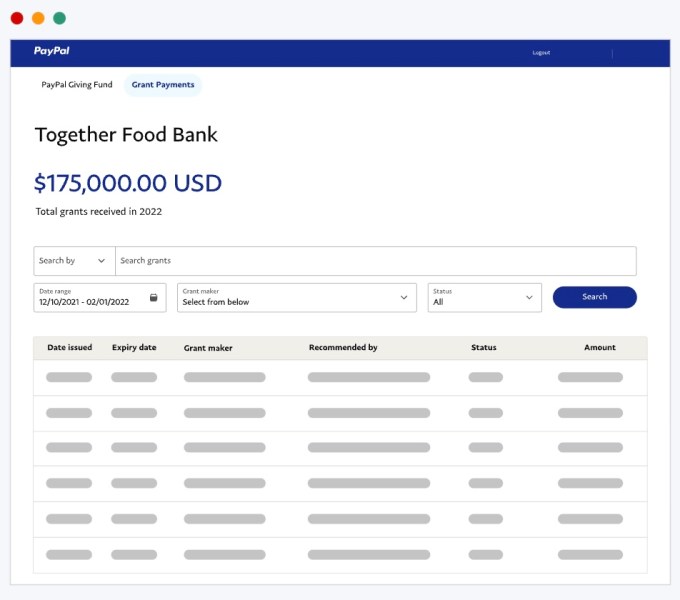TechCrunch is bringing our flagship event, Disrupt, back to the real world this year, which means we’re hard at work on our big October 18-20 shindig. Founders, investors, tech denizens, crypto fans, and the like: We’re making something incredible just for you.
And no portion of the event has me more excited than what we have in store for you on the TechCrunch+ stage, one of the two main stages that will be going all day, every day at Disrupt. After months of honing topics and ideas, researching panelists to invite, and wrangling more schedules than you want to know about, we are now locked in for Disrupt 2022. We’re so proud of what we have prepared for you.
Pro tip: Save $1,100 when you buy your pass before September 16. Tickets start at just $99 to come to the show.
Whether you are just starting out with an idea, in the midst of early-stage growth, or looking to keep your late-stage startup ahead of the curve in a busy market, we have the information you need. Sessions include well-known startup founders, investors, and executives to help elucidate not only today’s best practices for tech entrepreneurs — a very different set of advice that we heard during the bull market that came to a close in late 2021 — but also the latest and greatest from the world of company-building itself. So, yes, we do have a session that will include the word “DAO” for all the founders out there building on the blockchain.
The full agenda follows. I can’t wait to see you there!
Tuesday, October 18
Live on Stage: TechCrunch’s Chain Reaction
Join us for a live podcast recording of Chain Reaction as we unpack and explain the latest crypto news, drama, and trends, breaking it down block-by-block for the crypto-curious.
How To Build Your Early VC Network: Turning Social Capital Into Financial Capital
with Nik Milanovic (This Week in Fintech), Josh Ogundu (Campfire) and Gefen Skolnick (Couplet Coffee)
If you haven’t heard of Nik, Josh or Gefen, where have you been? They are founders that are not only building very interesting companies but have taken a forward approach toward making noise on social media. We want to dive into how being a public person can help founders build a future public company. This should be a panel that will be not only informative but also lots of fun.
How To Secure Those Hard-To-Find Hires
with Chris Herd (Firstbase) and Emil Yeargin (Gusto)
Hiring is not easy even in the best of times. With a tight tech talent market and an increasingly remote-friendly — and therefore globally competitive — corporate landscape, founders have never had more places to hire from and more competitors to measure up against. So we’re going to have Chris Herd from Firstbase, who is an advocate for remote work, and Emil Yeargin, VP of Talent at Gusto, which is not only hiring itself but also helps other companies manage their staff. We’ll go deep on hiring today with a special focus on hard-to-fill roles.
Winning The War On Ransomware
with Brett Callow (Emsisoft) and Katie Moussouris (Luta Security)
Ransomware attacks are escalating at an alarming rate. We’ll hear from experts about what winning the war on ransomware looks like and how startups can play their part.
How To Raise First Dollars When Investors Are More Cautious, The Founder Perspective
with Amanda DoAmaral (Fiveable), Sara Du (Alloy Automation) and Arman Hezarkhani (Parthean)
While it’s always good to hear from venture capitalists when it comes to dollars and cents, how founders are navigating the capital market is just as important. So we’re gathering Amanda DoAmaral of Fiveable, Sara Du of Alloy Automation and Arman Hezarkhani of Parthean to talk us through what worked for them and how their perspective has been updated in light of the changing economy.
Founder Fireside: Faire and Forerunner Ventures
with Kirsten Green (Forerunner Ventures) and Jeff Kolovson (Faire)
The COVID-19 pandemic brought with it a boom in e-commerce and folks working on making their homes more comfortable. This shift impacted more than just consumers, however. Faire, a marketplace that connects SMBs to wholesalers, had to navigate a market replete with evolving demand and supply chain issues. Now, with the COVID period behind us (at least from a business perspective), TechCrunch will sit down with Faire co-founder and COO Jeff Kolovson and backer Kirsten Green, a founder and partner at Forerunner Ventures, to talk through the company, its market, and where it’s heading next.
What Does Product-Market Fit Mean When Hype Tanks?
with Pali Bhat (Reddit), Avlok Kohli (AngelList), and Annie Pearl (Calendly)
Reddit Chief Product Officer Pali Bhat, AngelList CEO Avlok Kohli and Calendly Chief Product Officer Annie Pearl are coming to Disrupt to help founders hone their definitions of product-market fit. The concept, often shortened to PMF, is tricky as it’s not easily defined for all startups at once. But one thing that happens when market sentiment takes a dive is that definitions tighten. So how should founders measure PMF in a more difficult market, from both a fundraising and customer perspective? We’ll find out.
Wednesday, October 19
Live on Stage: TechCrunch’s Found
Join us for a live podcast recording of Found, a show about founders and company-building featuring people doing the work. We’ll interview an early-stage startup founder about how they took the plunge to begin with, and how they navigate everything from building product road maps to raising funding from some of the world’s top investors – and to how they manage failure, too
Building Companies with Longer Time Horizons
with Gene Berdichevsky (Sila), Erin Price-Wright (Index Ventures), and Katie Rae (The Engine)
Not every startup can generate revenue from day one. From hardware to hard science, some startups take more time to build income streams. How can founders get around revenue concerns in a more conservative funding market? And how do investors weigh risk when it comes to bets that may take longer to pull off? For growing startup categories like robotics and climate, these are not idle questions. We’re bringing Sila’s Gene Berdichevsky, Index Ventures’ Erin Price-Wright and The Engine’s Katie Rae together to share the real nuts and bolts of early fundraising in 2022.
How To Measure TAM Without Bullshitting Yourself
with Kara Nortman (Upfront Ventures), Aydin Senkut (Felicis), and Deena Shakir (Lux Capital)
A common refrain from venture capitalists last year was that software valuations weren’t too high, as the TAM, or total addressable market, for tech companies was simply larger than folks had originally thought. Sure, but some of those startups are now stuck comparing high burn rates with future TAM. So how should founders and their backers really think about TAM to avoid bullshitting themselves or their colleagues? Upfront Ventures’ Kara Nortman, Felicis’ Aydin Senkut and Lux Capital’s Deena Shakir will tell us.
How To Raise In 2022 If You Are Not Located In A Major Hub
with Mike Asem (M25), Rich Wong (Accel) and Elizabeth Yin (Hustle Fund)
Sure, you no longer have to be located in Silicon Valley — let alone California — to build a startup or raise money. But there are still areas where there are more venture capitalists per square mile and areas where there are fewer. To get to grips on raising outside of traditional startup hubs, we’re bringing together VCs who either live and invest in — or simply invest in — more up-and-coming geographies. Mike Asem of M25, Rich Wong of Accel, and Hustle Fund’s Elizabeth Yin are joining us for this particular chat. It’s going to rock.
How To Compete Without Losing Your Mind Or Runway When Cash Is Expensive
with Ruth Foxe Blader (Anthemis), Eric Glyman (Ramp), and Thejo Kote (Airbase)
We love a competitive startup category here at TechCrunch. Watching startups go head to head is fascinating and illuminating. But for startups in hot sectors with big markets, competing can be very expensive. So how should startups that have incumbents to take on, other startups to best, or both, approach the balance between growth and spend this year? We’re gathering Anthemis Partner Ruth Foxe Blader, Ramp co-founder and CEO Eric Glyman, and Airbase founder and CEO Thejo Kote to help guide more early-stage founders.
How To Raise First Dollars In A More Difficult Market, The Venture Perspective
with Annie Case (Kleiner Perkins), Jomayra Herrera (Reach Capital), and Sheel Mohnot (Better Tomorrow Ventures)
It is clear by now that the venture market has changed this year. That means that founders looking to raise first capital for their startup can’t follow last year’s playbook and expect results. So what do founders need to know, and how can they best snag investor attention in a market where the rules are changing? We’re bringing together Annie Case of Kleiner Perkins, Reach Capital’s Jomayra Herrera and Sheel Mohnot of Better Tomorrow Ventures to share the real nuts and bolts of early fundraising in 2022.
Founder Fireside with Brex and Y Combinator
with Henrique Dubrugras (Brex) and Anu Hariharan (Y Combinator)
Brex rolled into the corporate card market with a bang, blanketing San Francisco in advertising and leveraging small-city network effects to get founders to sign up other founders. But since its launch, the corporate card space has evolved into the incredibly competitive corporate spend market. How is Brex working to stay ahead of its rivals? We’ll chat with co-founder and CEO Henrique Dubugras and one of his backers, Y Combinator’s Anu Hariharan, to learn more.
Thursday, October 20
Live on Stage: TechCrunch’s Equity
Join us for a live recording of Equity, the podcast about the business of startups. We’ll unpack the numbers and nuance behind the headlines, and wade through the hype to keep you up to date on the world of business, tech and VC.
Founder Fireside: Clubhouse
with Paul Davison (Clubhouse)
Few startups had as much hype – and early consumer buy-in – as Clubhouse. Since its mega-hit introduction, however, it has seen its service copied by a host of competitors while working to expand and fine-tune its model. TechCrunch will sit down with Clubhouse co-founder and CEO Paul Davison to talk about the company’s past, present, and future.
Negotiating Your First Term Sheet
with Mandela SH Dixon (All Raise), Kevin Liu (Techstars) and James Norman (Black Operator Ventures)
It’s always a good time to sit down and chat about the mechanics of term sheets and the give and take between investors and founders. It’s an especially good time now as the balance of power between founders and investors has shifted from a period in which founders never had great ability to demand friendly terms to an era in which it feels like investors have more power than in recent history. So we’ll get the latest from All Raise CEO Mandela SH Dixon, Techstars Head of Portfolio Capital & Investments Kevin Liu and Black Operator Ventures General Partner James Norman on term sheets, negotiations and terms to help founders navigate the current climate.
How To Manage Staff In A Remote, Asynchronous Reality
with Mathilde Collin (Front), Deidre Paknad (WorkBoard), and Adriana Roche (Mural)
Companies big and small are figuring out how they are going to distribute and manage their workforces in 2022. After a few years when even the most traditional company was forced to go remote, startups are now having to choose between remote setups, hybrid teams or a return to the office. But no matter what they choose, all companies are going to have more remote staff than ever before. To help founders understand how to manage those staffers, Front’s Mathilde Collin, Mural’s Adriana Roche and WorkBoard’s Deidre Paknad are joining us to talk about what works.
Founder Fireside: Metafy and Seven Seven Six
with Josh Fabian (Metafy) and Katelin Holloway (Seven Seven Six)
Metafy is bringing video game coaching to the masses, and it’s not only for gamers who may want to go pro. As digital gaming has become one of the most important international pastimes, consumers are more willing than perhaps ever to spend on their hobby. TechCrunch will sit down with Metafy founder and CEO Josh Fabian and his venture capital backer, Katelin Holloway of Seven Seven Six, to dig more deeply into the company, its market, and how it is working to grow even faster.
Structure, Regulation, and Markets: The Road Ahead for Crypto Startups
with Brett Harrison (FTX), Mary-Catherine Lader (Uniswap Labs), Cuy Sheffield (Visa)
From DAOs and altcoins to L2-chains, NFTs, tokens, and figuring out just what the heck a security is, the crypto market is under the spotlight — and under scrutiny. TechCrunch will sit down with FTX’s Brett Harrison, Uniswap Labs’ Mary-Catherine Lader and Visa’s Cuy Sheffield to get a better handle on how they are navigating constant evolution, the new opportunities that the blockchain economy has on offer, and where they see the future taking their market.
TechCrunch Disrupt 2022 takes place in San Francisco on October 18–20 with an online day on October 21. Grab this good thing while you still can. Buy your pass by 11:59 p.m. PDT on September 16 and you can save up to $1,100.






 Data analysis startup Zing Data
Data analysis startup Zing Data 
